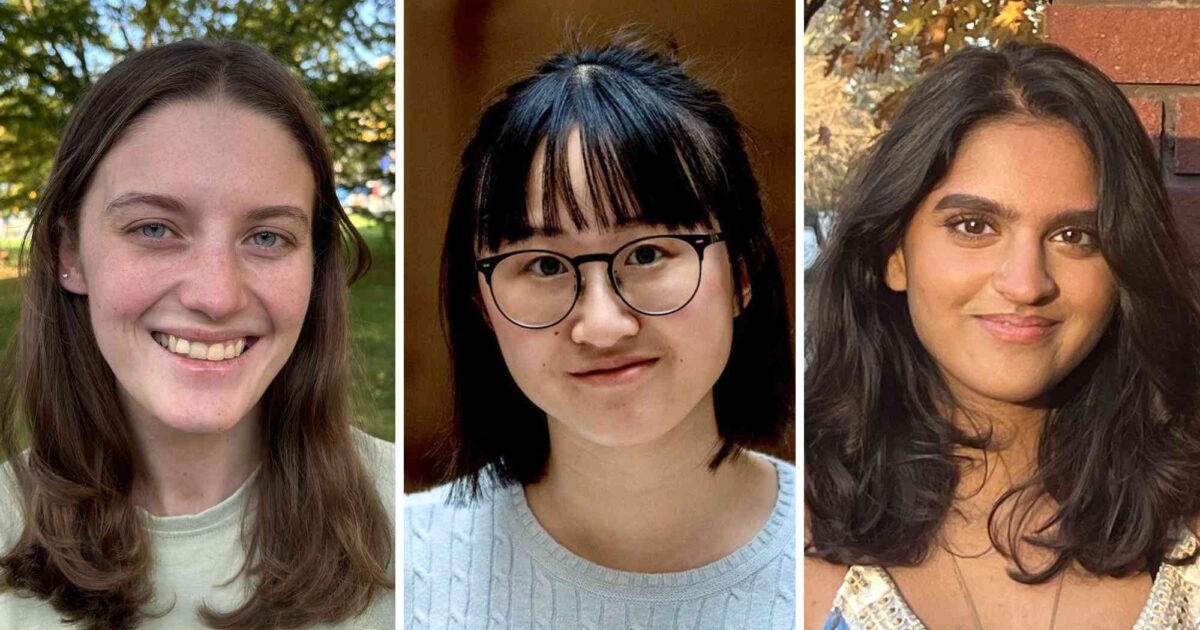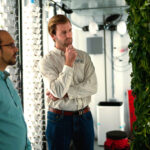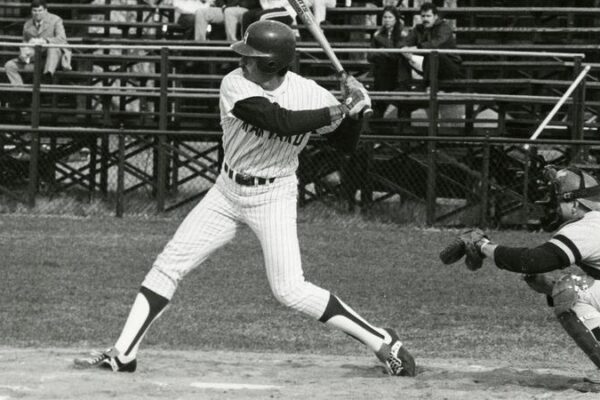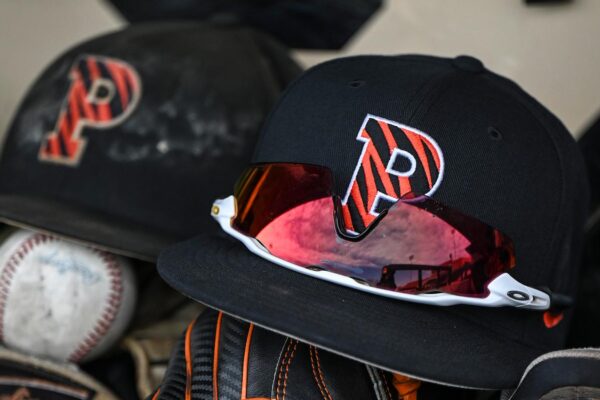Undergraduates pair research with reporting, science with sign language, and programming with pondering
The Wells Prize honorees exemplify the best of the multidisciplinary educational opportunities available at Rochester.
Each year, the University of Rochester recognizes three undergraduate students with the Robert L. Wells Prize. The award, presented by the Hajim School of Engineering & Applied Sciences, honors seniors who are majoring in an engineering discipline while pursuing a major or minor in one of the humanities fields. The recipients are those with the highest grade point averages at the end of their junior year.
Named for Robert Wells ’39, who felt strongly that an engineer needed the balance of the humanities, the award celebrates the unexpected connections and synergies that emerge across disciplines.
This year’s Wells Prize recipients are:
Allie Jia Hui Tay: Taking chances on new opportunities
Since arriving on campus, Allie Jia Hui Tay ’25 has thrived on good conversation. As a first-year student chatting with friends, she’d ask to look over the homework of those studying biomedical engineering. Intrigued, she switched her major from neuroscience during sophomore year.
“Engineering requires you to think deeply about how to apply the concepts you are learning,” she says, “and it really changed my mindset. I realized that learning how to learn would ensure that I could always succeed in problem-solving.”
To keep ideas flowing, she joined the Campus Times, the University’s student newspaper, as a writer for the opinion section. “Journalism felt like a creative outlet that also drew me out of my comfort zone,” she says. “I slowly got more comfortable with news reporting: interviewing people, writing their stories. I thought it was cool that I could walk up to anyone I thought was interesting and start a conversation.” Courses in reporting, poetry, narrative, and feature writing rounded out her skills. This year, she serves as the Times’ editor-in-chief and vice president of the Tau Beta Pi Engineering Honor Society.
Tay is also a research assistant at the Center for Musculoskeletal Research under Chao Xie, an associate professor in the Department of Orthopaedics at the Medical Center. Last summer, she took part in the Discover Grant for Undergraduate Summer Research Scholars Program, applying her biomedical knowledge to investigations in femur models. Tay had the chance to perform confocal microscopy and biomechanical analysis as she assisted in procedures.
Tay was even a member of the Rochester team that participated in the 2023 International Genetically Engineered Machine (iGEM) competition, an event in which student-led teams from around the globe compete to solve real-world problems using synthetic biology.
“My research has helped to orient me in the scientific community,” she says, “and allows me to apply theories learned in the classroom to problem-solving on the bench.”
Most memorable course: ENGL 131: Reporting and Writing the News with David Andreatta, an adjunct instructor in the Department of English and a seasoned investigative journalist. “He was a constant source of positive energy, no matter how drained I felt walking in,” says Tay.
Advice for students: “From day one, talk to as many people as you can. They will show you new sides of yourself you never would have expected, and help you discover opportunities you never would have known about. I was super introverted in high school and I’m so glad to have branched out.”
Kaela Brunner: Pursuing the “sign”-tific method
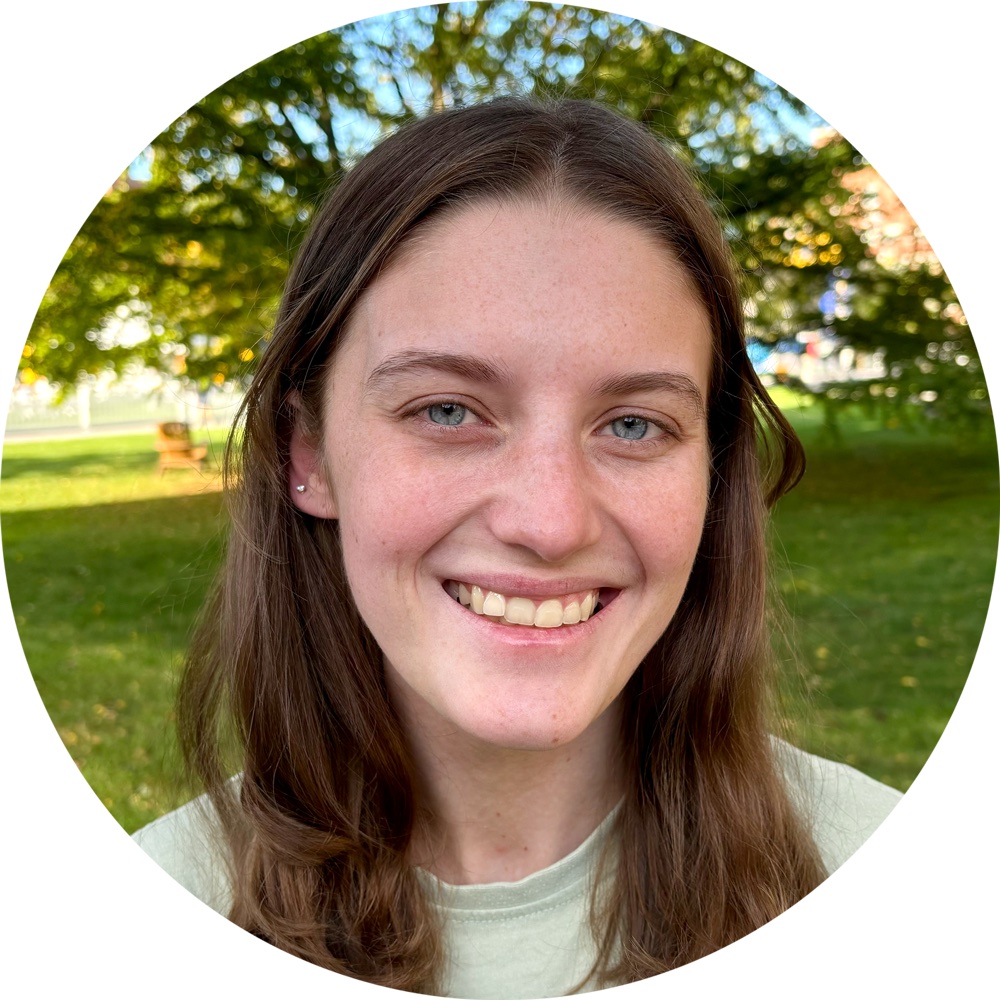 Kaela Brunner ’25 explored “all the STEM interests” while growing up, citing robot-building as a favorite pastime and earth science as a standout class. In high school, she chose American Sign Language (ASL) as her world language requirement, and knew she wanted to continue.
Kaela Brunner ’25 explored “all the STEM interests” while growing up, citing robot-building as a favorite pastime and earth science as a standout class. In high school, she chose American Sign Language (ASL) as her world language requirement, and knew she wanted to continue.
“Part of why I chose to study in Rochester was its large Deaf population,” she says.
According to Brunner, both geomechanics and ASL offer different ways to “process and understand” concepts. “With math or science, I am integrating information piece by piece. With ASL, I am trying to be communicative and expressive, finding creative means to convey ideas,” she says. Her three-course cluster in linguistics lends insight into “how to structure sentences while expressing idioms and other figures of speech” through her signing.
Through Brunner’s involvement in the ASL Club, she has performed in Sign Idol, the campus-wide spin-off of American Idol in which songs are interpreted into sign language. “I like to choose songs from Disney movies,” she says, “because telling a story makes signing easier.” Her past performances include “We Don’t Talk About Bruno” from Encanto and “Poor Unfortunate Souls” from The Little Mermaid. As this November’s competition approaches, Brunner is preparing her signing routine for “What’s This?” from The Nightmare Before Christmas.
Brunner supports investigations in the Department of Earth and Environmental Sciences’ Paleomagnetic Research Group, examining artifacts such as clay bricks to glean information about past magnetic fields. She is also president of the Makers Club, guiding members through DIY engineering projects, and contributes to the hydroponics projects of the Sustainability through Engineering organization.
After graduation, Brunner plans to focus on geohazard mitigation, which involves working to secure areas against landslides and other natural disasters, especially in the face of climate change.
Most memorable course: EESC 201: Evolution of the Earth, taught by Rory Cottrell, a scientist in the Department of Earth and Environmental Sciences. “This course covers the whole geologic time scale from Earth’s origins to modern day. The more I studied earth science, the more I appreciated its breadth: biology, engineering, chemistry, physics, and even computer modeling,” Brunner says.
Advice for students: “Make a game plan for your schedule as soon as you can. There are so many classes you’ll want to take, that you’ll want to ensure sure you’ve checked out as many offerings as possible. I’m still trying to fit in classes like Nature’s Fury: Earthquakes, Volcanoes and Tsunamis. I’m hoping to take that before I graduate!”
Sarah Mammen: Applying logic to codes and conundrums
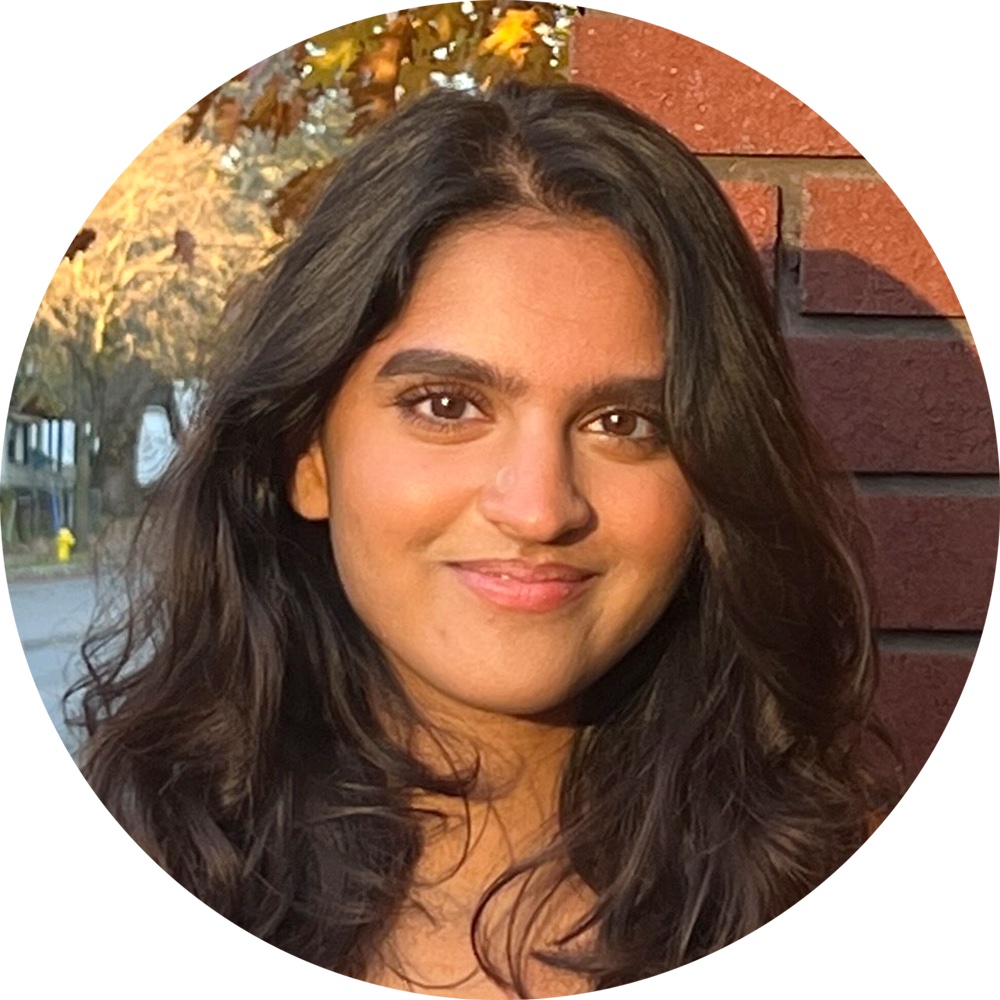
Sarah Mammen ’25 began her undergraduate career as “a pure philosophy major on the pre-law track,” she admits. But an introductory course in programming renewed her interest in computer science, which she had studied in high school.
“Philosophy and computer science are similar in the fact that they both have deep logical underpinnings,” she says. “In both computer programming and philosophical arguments, you need to remain internally consistent with a solid throughline for a cohesive result. Otherwise, the code or case breaks down.”
Exploring such connections sparked her interest in the intersection of privacy law, technology, and machine learning, a subfield of artificial intelligence (AI). Last summer, she took a machine learning fellowship to keep pace with this fast-advancing technology.
“One major reason I chose to study here is the Rochester Curriculum,” she says. “It meant that I could take a deep dive into the subjects I wanted to explore, to create a well-rounded education.”
Mammen serves as the undergraduate representative to the Department of Philosophy’s diversity, equity, and inclusion committee. “As a woman of color who has experienced imposter syndrome, the feeling that I didn’t really belong, promoting inclusion and equity throughout the department is something I care about deeply.”
She has also served as the president and promotions chair of No Jackets Required, a performing arts club focused on contemporary music, playing guitar, bass, and drums in shows that often draw more than 200 people. “I had started playing instruments in high school but got more involved here, having met people who are committed to building community through music.”
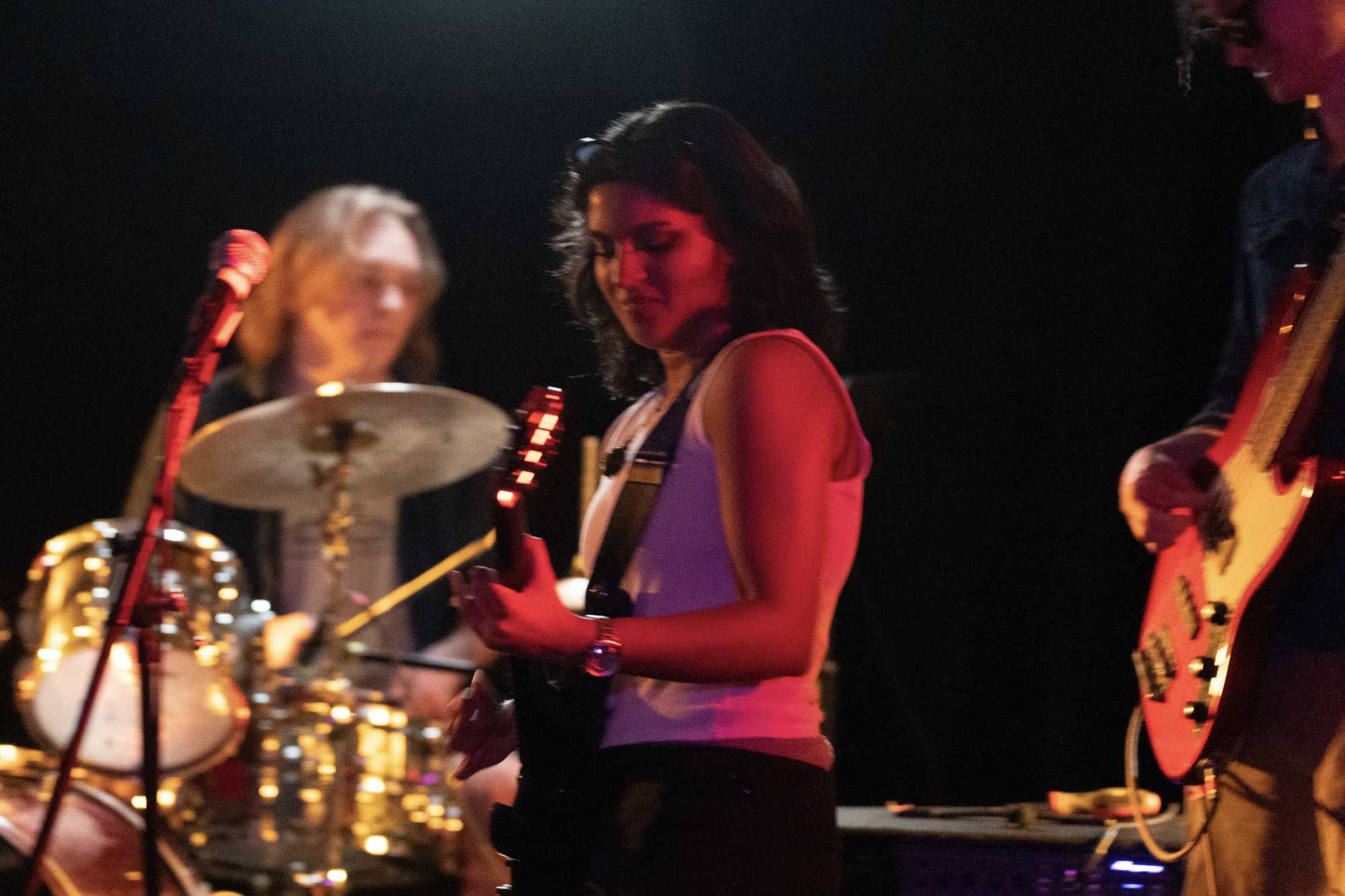
Most memorable courses: “After taking Introduction to Philosophy with Paul Audi, he sent me an encouraging email: ‘I don’t know if you’re thinking about taking any more philosophy, but you clearly have a huge amount of talent for it.’ More recently, PHIL 235/435: Data, Algorithms, and Justice, taught by assistant professor Jonathan Herington, explores how AI will shape our concepts of fairness. “For an algorithm that can detect cancer, what is the acceptable number of false positives? If you are designing a car, how will it perform at a crash zone? Once we get to a point where we’re implementing these strategies in real life, we need to address the inevitable questions,” says Mammen.
Advice for students: “Try new things, even if you think you’re not interested initially. You have the space to explore all these new junctures that reveal unexpected connections. Take these opportunities to follow your curiosity and study with professors who are all dedicated to their fields—and to helping you succeed.”









